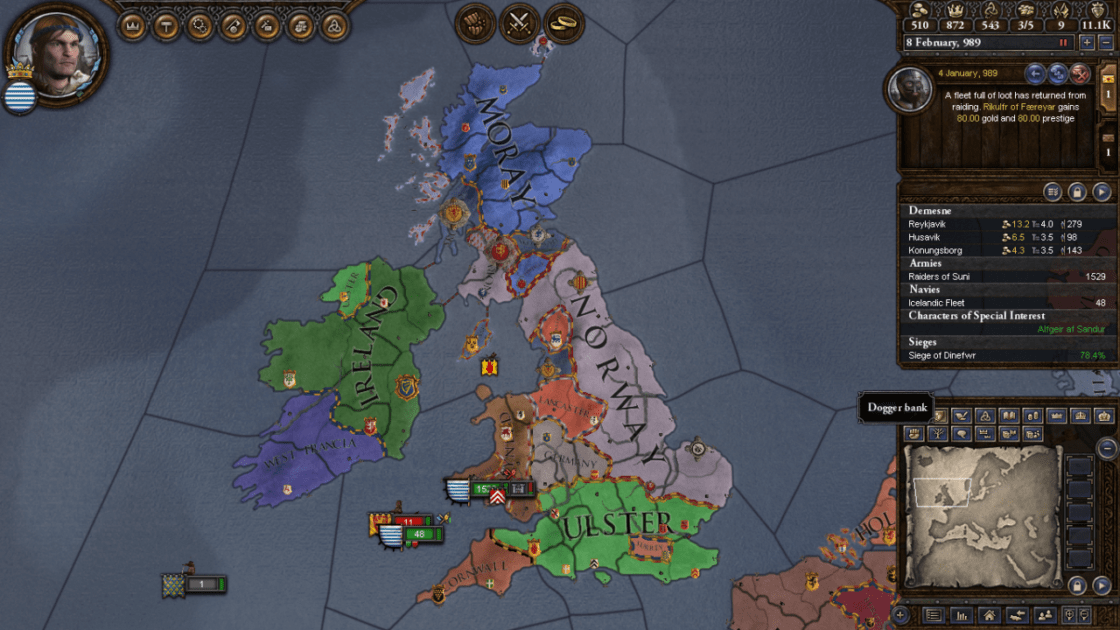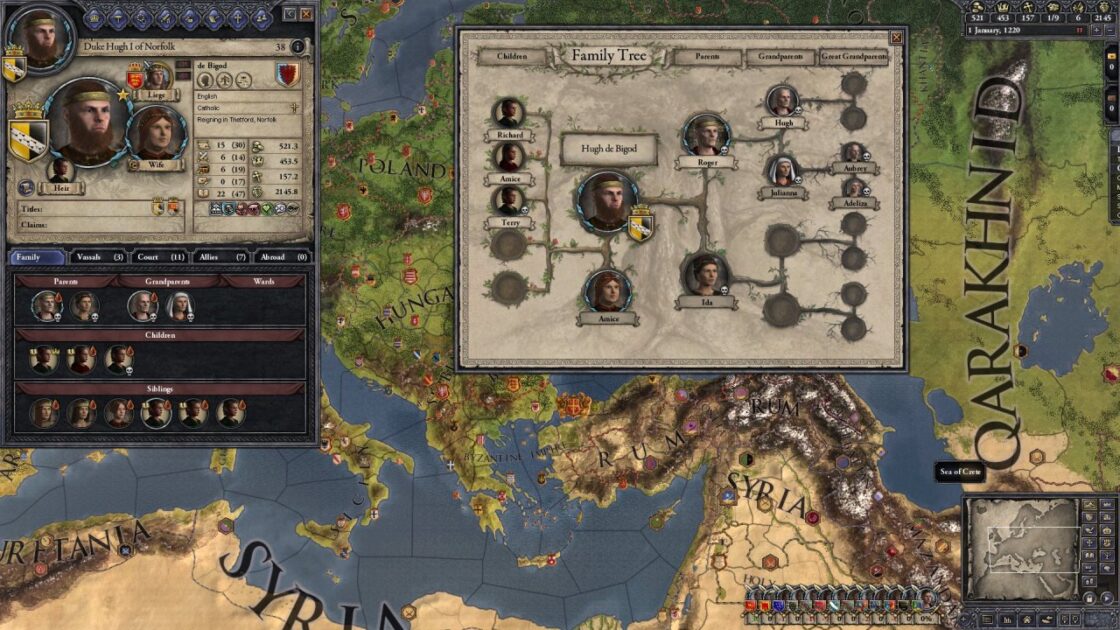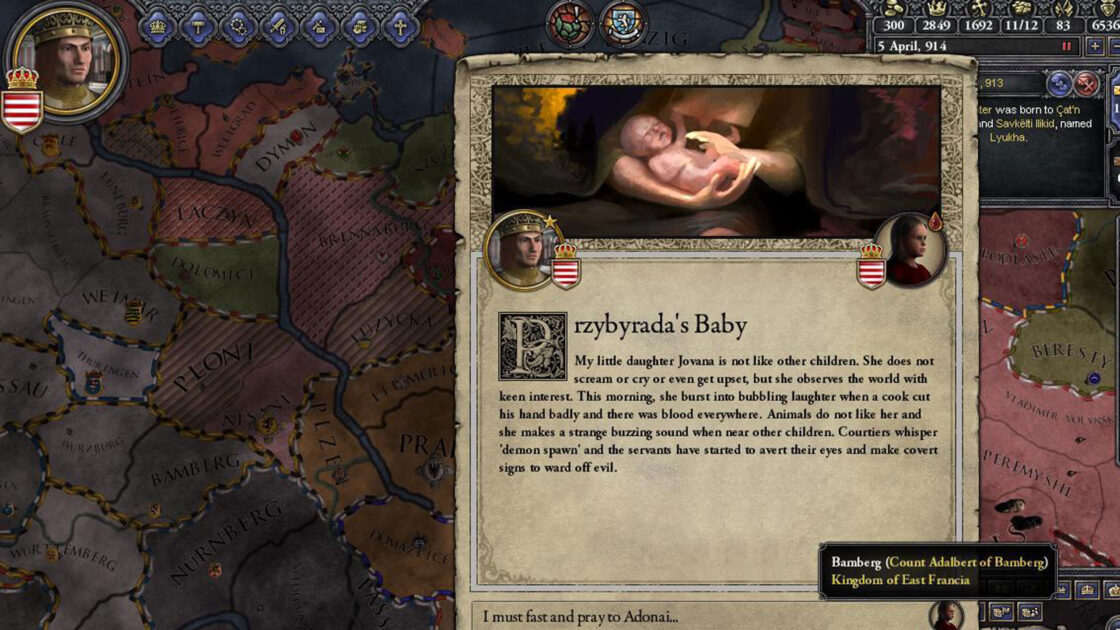Why more games should take a leaf from Crusader Kings
Reading time: 3 minutesCrusader Kings II is arguably the most difficult, frustrating and complicated video game I have ever played. On par with Europa Universalis IV, it has one of the steepest learning curves in video gaming history. It is, as the lovely Mike describes it, the epitome of the dialogue-box simulator. And it is, in my humble opinion, one of the greatest video games ever made.
For those unaware, Crusader Kings II is a Grand Strategy-cum-RPG, where you take control of one of the thousands of rulers and gradually expand your influence and borders using infantry, intrigue, and incest, all in a medieval European setting. It’s a slow and gradual experience where you can rise from the Duke of Norfolk to Emperor of the Holy Roman Empire, or turn Scotland into paradise where Islam is the primary religion. And I know what you’re thinking with that last example. Scotland, a paradise? Never! But I tell no lies, it really can happen.

The game’s only failure condition comes from running out of people in your dynasty to play as. So, as soon as the last child is assassinated by the Pope, for example, it’s game over once your character dies. It places what you’re currently doing in constant shift, with your personal empire goals being challenged by the knowledge that if you don’t marry soon it’s game over and you’ll get nothing done.

And it’s here that Crusader Kings II does something that I think a lot of video games could learn from: it doesn’t care if you lose. But, moreover, it works in such a way that you don’t care if you lose.
The joy of the game is not in “winning”. I mean, it is gratifying when you achieve a self-set goal in game, such as deposing the Pope and replacing him with a chap who’s very good at fiddling the finances. But it’s not what matters in the grand scheme. No, what matters is making stories, and forming an entirely unique narrative is where the game shines. Even “losing” a game – such as the one where my English crown got usurped by my bastard brother (in both senses of the word) – was satisfying, because it rounded off the story of a dynasty I had been with for nearly two hundred years. And the game gives you devil children, assassination attempts, and Papal raids on the Count of Napoli to aid in your own little slice of history. Perhaps the best example of the way the game handles stories is that time a horse became ruler of the Holy Roman Empire. Seriously.

This is the unique advantage video games have over other forms of media. With films and television – and even books to a certain degree – the audience can only watch and observe what is happening. But with games, the audience can directly be a part of what is going on in the world at that moment. And in a video gaming industry that’s full of branching choices, player decisions, and grander storylines than the average Game of Thrones episode, Crusader Kings II is the standard we should all be looking up to. Because still, after all these years, no one does player choice and player interaction better.
Deus vult.

